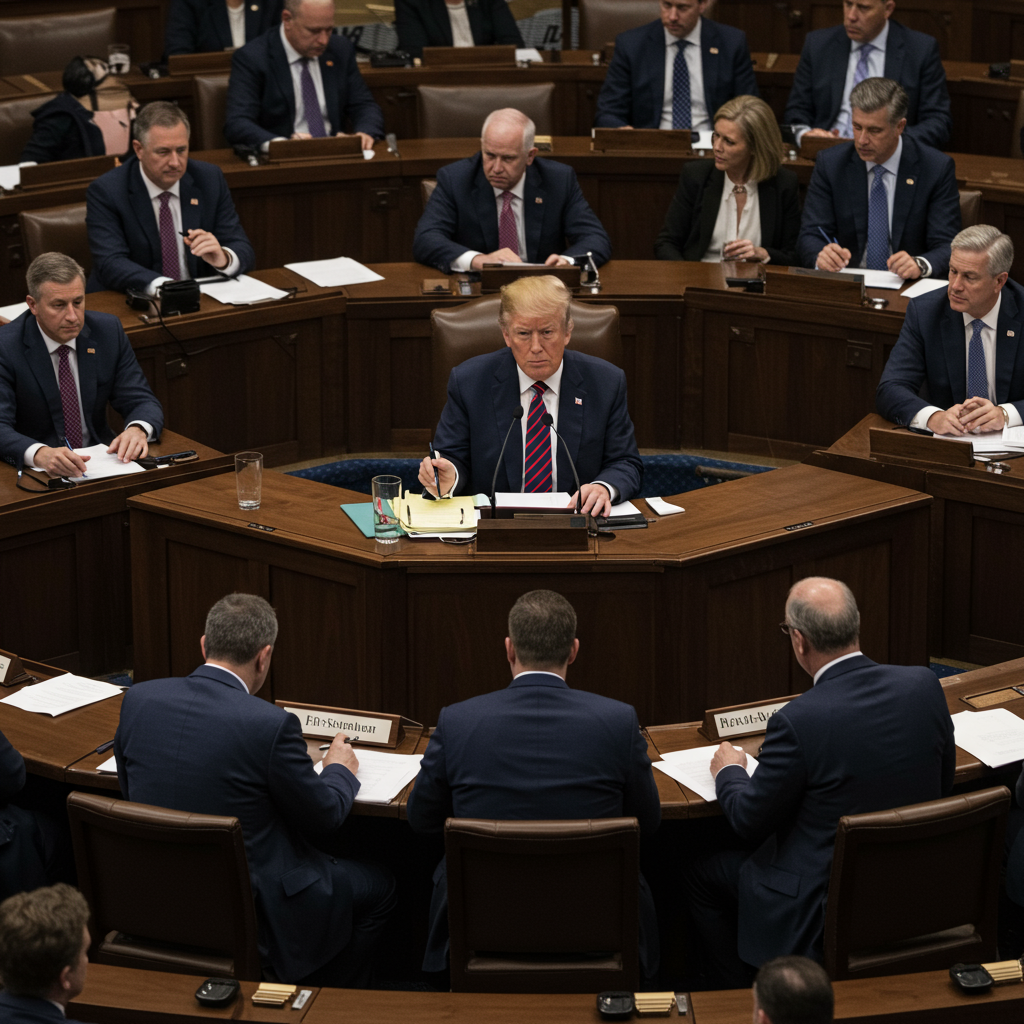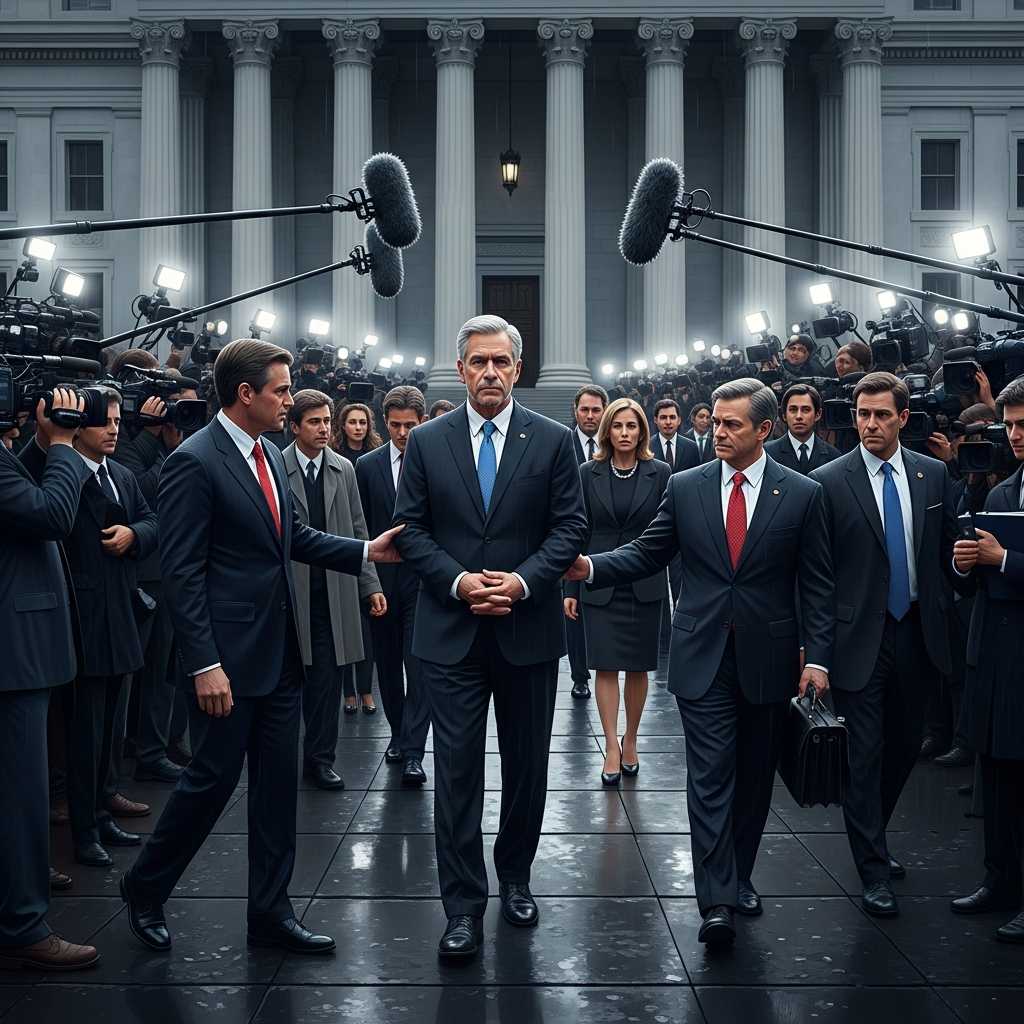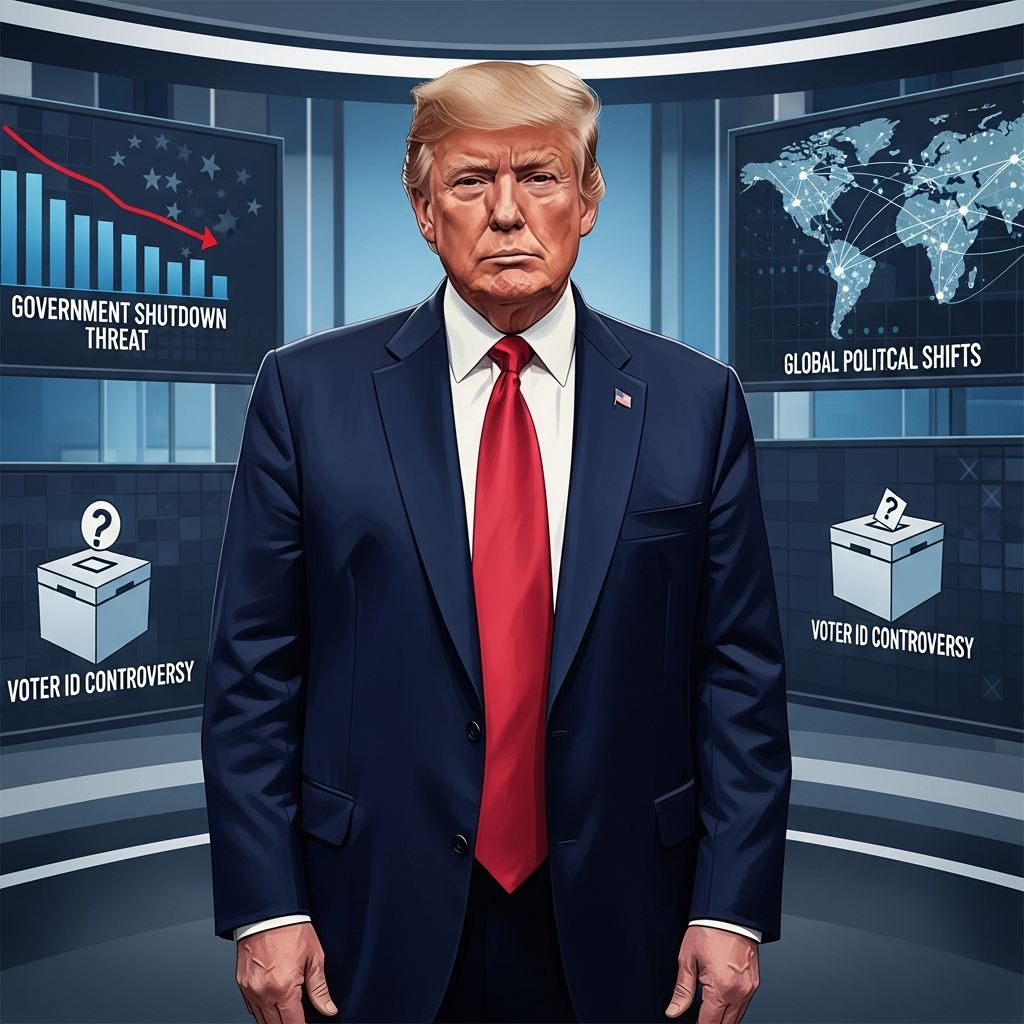The U.S. senate is locked in a marathon session. Lawmakers are debating President Trump’s sweeping “One Big Beautiful Bill Act.” This critical legislative battle stretches into its third day. Its outcome remains deeply uncertain. Republican leaders are scrambling to secure enough votes from their own ranks. The bill’s fate hangs precariously in the balance just days before President Trump’s ambitious July 4 deadline.
This contentious package proposes massive changes. It aims to extend the 2017 tax cuts. It would add new tax breaks. Billions would flow to national and border security. To offset some costs, the legislation proposes deep cuts to crucial programs like medicaid and federal nutrition assistance. It also includes a significant hike in the federal debt limit. The high stakes have fueled intense negotiations and procedural battles on the Senate floor.
Inside the Record-Breaking Vote-a-Rama
Senate procedures allow for extensive debate and amendment voting. This session has become a historic “vote-a-rama.” Senators have cast over 45 consecutive votes. This surpasses the previous record set in 2008. The grueling pace has visibly taxed lawmakers and staff. Democrats are using the process strategically. They introduce numerous amendments. Their goal is to force Republicans into tough votes. These votes highlight unpopular provisions. This includes deep cuts to health and nutrition programs. Republicans are pushing back against these challenges. They aim to keep the bill on track for a final vote.
The legislation is moving under special budget reconciliation rules. This allows passage with a simple majority. It bypasses the usual 60-vote filibuster hurdle. However, Republicans hold a narrow 53-47 majority. They can only afford to lose three votes. Democrats stand united in opposition. This makes securing the necessary support incredibly challenging for Republican leaders.
Key Provisions Sparking Fierce Debate
The bill includes several major components. Each faces significant opposition.
Tax Cuts: It extends roughly $3.8 trillion in tax reductions from 2017. These cuts are set to expire soon. New tax cuts for tips and overtime pay are also included.
Spending Boosts: Funding for national and border security would see a dramatic increase. The Department of Homeland Security budget could rise by $101 billion. This includes $45.6 billion for border wall construction.
Medicaid and Nutrition Cuts: The bill proposes slashing nearly $1 trillion from Medicaid. Nonpartisan analyses suggest this could lead to over 11 million people losing health coverage. Federal nutrition assistance programs also face significant reductions.
Debt Limit Increase: The legislation would raise the federal debt limit by $5 trillion. Fiscal conservatives in the Republican party strongly oppose this. Nonpartisan estimates project the bill could add $3.3 trillion to the national debt over a decade.
Clean Energy: Funding for clean energy programs is slated for cuts.
Abortion Access: A provision remains that would block Medicaid funding for clinics providing abortions. Critics call this a “backdoor abortion ban.”
Republican Holdouts Threaten Passage
The biggest obstacle for Republican leaders is internal dissent. Several Republican senators have voiced serious reservations. Some are outright opposing the bill.
Senator Thom Tillis of North Carolina announced he will vote against the measure. He cited objections to the Medicaid cuts. Senator Rand Paul of Kentucky is also a firm “no.” His primary concern is the large increase in the federal debt limit.
Other senators remain undecided. Senator Lisa Murkowski of Alaska is a key target for leadership persuasion. Her concerns focus on Medicaid and nutrition program impacts on her state. Leaders have tried to add specific benefits for Alaska. However, some provisions faced challenges under Senate rules. The Senate parliamentarian ruled against allowing Alaska a boosted federal Medicaid payment rate. Senator Susan Collins of Maine also leans against the bill. Her proposal to increase funding for rural hospitals failed. She sought to offset this with higher taxes on the wealthy.
A group of conservative senators seeks deeper cuts to Medicaid. This includes Senators Rick Scott, Ron Johnson, Mike Lee, and Cynthia Lummis. Their push for a specific amendment has added further complexity. Majority Leader John Thune has worked tirelessly through the night. He is negotiating with these and other holdouts. Winning over just one or two senators could determine the bill’s fate.
Vice President Vance on Standby
Vice President JD Vance arrived at the Capitol early Tuesday morning. His presence signals the possibility of a final vote drawing near. As President of the Senate, the Vice President can cast a tie-breaking vote. If Republicans manage to get exactly 50 votes, Vance would be needed for passage.
Democratic Opposition and Strategy
Democrats remain united in their opposition. They argue the bill disproportionately benefits the wealthy. They highlight the severe impact of Medicaid and nutrition cuts on vulnerable populations. Minority Leader Chuck Schumer stated Democrats are deliberately introducing amendments. This aims to expose Republican priorities. They believe the public supports their efforts to protect healthcare and essential services. The goal is to make Republicans take politically difficult votes.
The Elon Musk Factor
Adding to the drama is a public feud between President Trump and entrepreneur Elon Musk. Musk, a significant Republican donor, has vehemently criticized the bill. He called it “insane” and warned of “debt slavery.” He threatened to fund primary challenges against Republicans who support the measure.
President Trump fired back publicly. He questioned Musk’s motivation. He suggested Musk opposed the bill due to the removal of electric vehicle tax credits. Trump also issued veiled threats. He mentioned the Department of Government Efficiency (“DOGE”). He suggested it might investigate subsidies received by Musk’s companies. He even speculated about Musk potentially needing to leave the country without government support. This public spat underscores the deep divisions the bill has created.
Broader Context: Policy Shifts and Impacts
The debate over this bill occurs amidst other significant policy changes. The administration is moving to dismantle foreign aid programs. The U.S. Agency for International Development (USAID) saw most staff depart on their final day. Former Presidents Bush and Obama, along with Bono, commended USAID’s work. They criticized the decision to end its programs.
Other reports highlight potential consequences of federal policy shifts. Stanford University announced significant budget cuts. They cited reduced federal research support and increased endowment taxes as factors. Federal meteorological offices reportedly face harsh cuts. This occurs during an unusually active severe weather season.
President Trump also visited a controversial migrant detention site in Florida. Officials described it as “Alligator Alcatraz.” This visit and the dramatic increase in border security funding within the bill underscore the administration’s focus on immigration enforcement. Meanwhile, Treasury Secretary Scott Bessent defended the bill’s fiscal impact. He blamed Democrats for delays.
The Road Ahead
The outcome in the Senate remains uncertain. Negotiations continue behind the scenes. Even if the bill clears the Senate, its fate in the House is also questionable. The House previously passed a slightly different version narrowly. House Republicans, including hardline conservatives, have raised concerns about the Senate’s version. They point to its higher projected impact on the national debt and procedural issues. Moderate House Republicans are also concerned about the deeper Medicaid cuts in the Senate bill. The legislative path forward is fraught with challenges on both sides of Capitol Hill.
Frequently Asked Questions
What are the main provisions of President Trump’s sweeping bill?
The bill, known as the “One Big Beautiful Bill Act,” is comprehensive. It extends the 2017 tax cuts. It adds new tax breaks, like for tips and overtime. It significantly boosts funding for national and border security. Crucially, it proposes deep cuts to federal programs. These include nearly $1 trillion from Medicaid and reductions to nutrition assistance. It also raises the federal debt limit by $5 trillion.
Why is the Senate vote on this bill taking so long?
The Senate is undergoing a “vote-a-rama.” This is a marathon session where senators introduce and vote on an unlimited number of amendments. Democrats are using this process to highlight controversial parts of the bill, such as Medicaid cuts, forcing Republicans to take public stances. Republicans are managing the process to eventually reach a final vote. Internal divisions among Republicans over specific provisions also prolong negotiations.
Who are the main Republican senators opposing or undecided on the bill?
Several Republican senators are key holdouts. Senator Thom Tillis opposes the Medicaid cuts. Senator Rand Paul objects to the increase in the federal debt limit. Senator Lisa Murkowski is undecided, concerned about the bill’s impact on Alaska’s Medicaid and nutrition programs. Senator Susan Collins also appears hesitant after her proposal for rural hospital funding failed. Leadership is negotiating intensely with these senators to secure their support.




